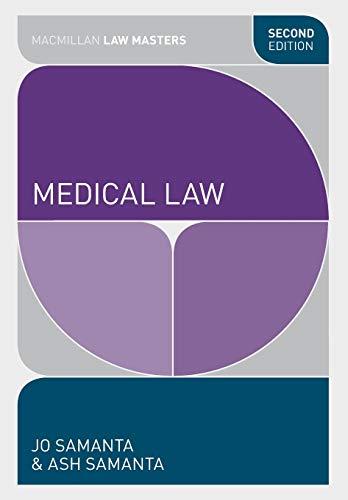Question
Normally a person can be guilty of a crime only after committing a criminal act. There are circumstances when a person can be guilty of
Normally a person can be guilty of a crime only after committing a criminal act. There are circumstances when a person can be guilty of a crime by NOT doing something, or by omitting to do something. Which ONE of the following statements is most accurate?
Question 6 options:
NOT doing something is a crime only when there is a common-law duty to do that thing. | |
| NOT doing something is a crime only when there is a statutory duty to do that thing.
| |
| NOT doing something is a crime when there is either a statutory duty or a common-law duty to do that thing.
| |
| The Supreme Court of Canada has the authority to create new crimes by creating new common-law duties, the breach of which amounts to a crime.
| |
| NOT doing something is NEVER a crime. |
Step by Step Solution
There are 3 Steps involved in it
Step: 1

Get Instant Access to Expert-Tailored Solutions
See step-by-step solutions with expert insights and AI powered tools for academic success
Step: 2

Step: 3

Ace Your Homework with AI
Get the answers you need in no time with our AI-driven, step-by-step assistance
Get Started


